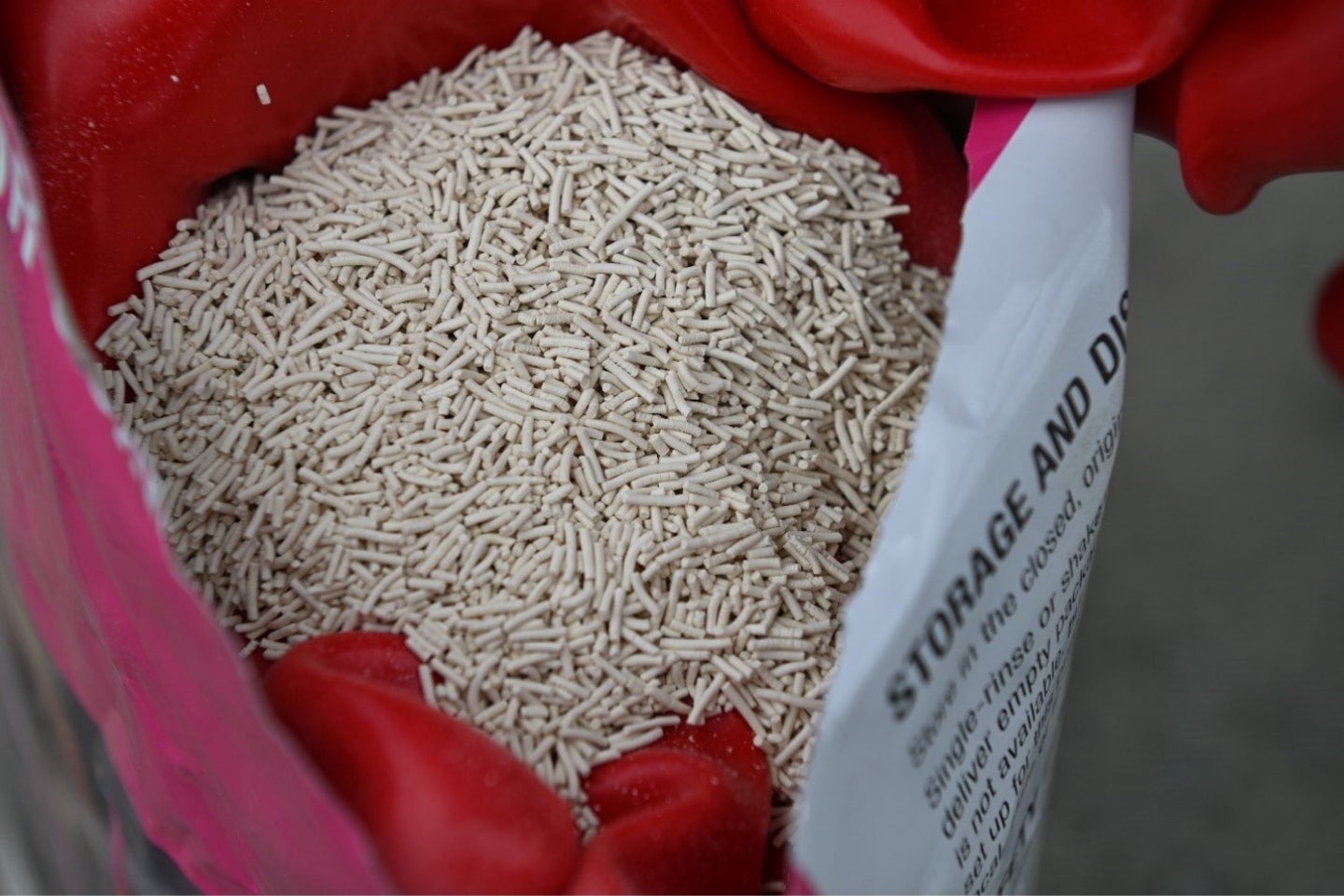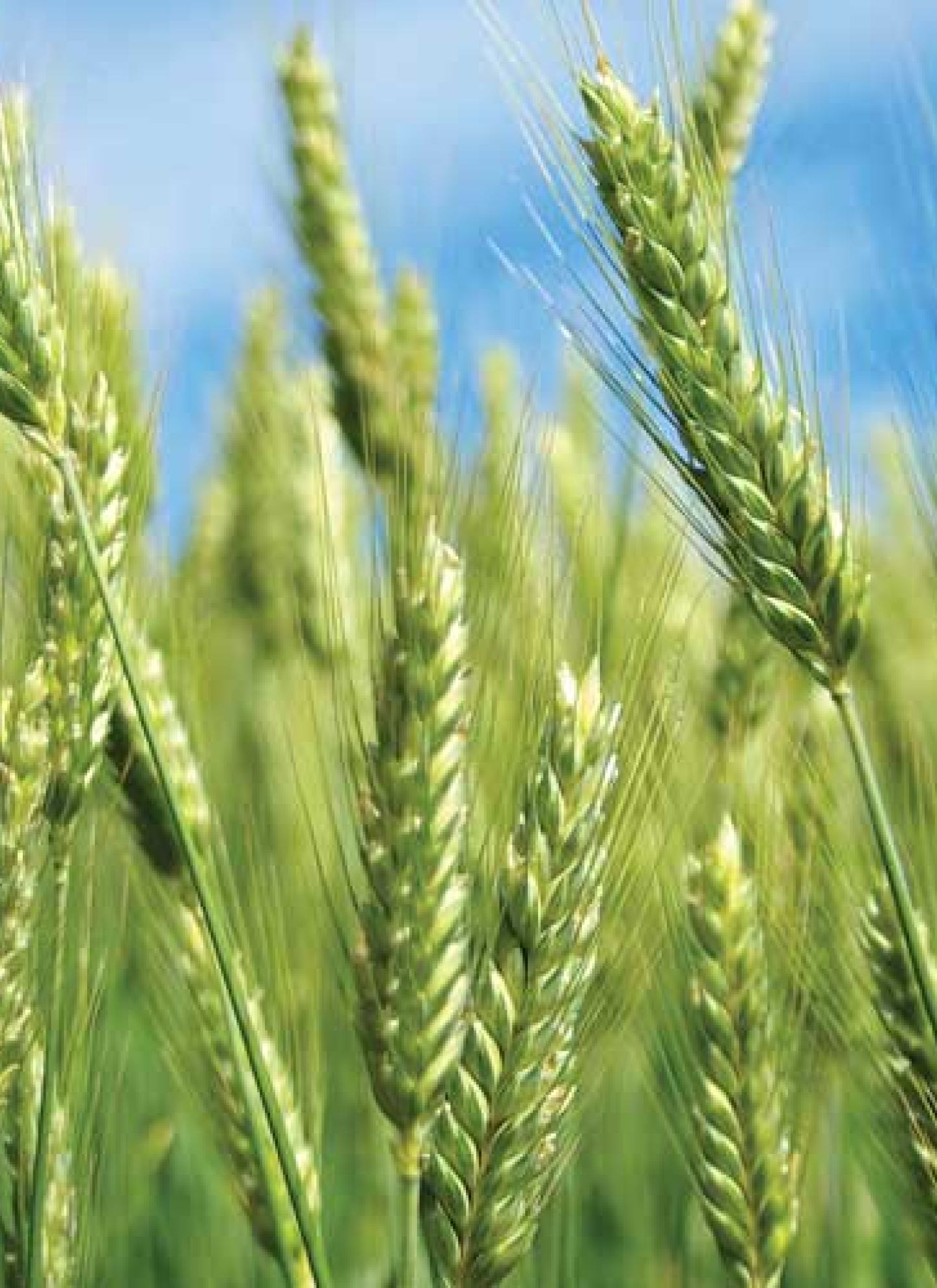A switch from Overwatch® Herbicide (liquid) to Overwatch® eXL Granules has been welcomed by Justin Ruwoldt of Glenvale Farms, at Kewell, in the Wimmera region of Victoria.
The Ruwoldt family grows Wheat, Barley, Canola, Faba beans and Lentils on the enterprise and has used Overwatch® Herbicide (liquid) since the first year of its release in 2021.
They rotate their herbicide groups through the different crop types and Mr Ruwoldt utilises Overwatch® Herbicide as the main pre-emergent option in Canola and Faba beans. “There are a broad range of weeds we can control with Overwatch®, so it suits us well,” he said.
This season he was one of the first in Australia to put out large areas of the granule formulation of Overwatch® branded as Overwatch® eXL Granules. Overwatch® eXL Granules is a 750 g/kg water dispersible granule (WG) formulation available in 20-kilogram bags and applied at the single application rate of 670 grams per hectare for all registered crops.
Mr Ruwoldt said they could use 50 kilograms (or two and a half bags) of Overwatch® granules to treat almost 75 hectares. “The next time you come back you have half a bag already measured out. It’s very quick. You can cut a bag with a Stanley knife and slowly tip it to a ¾ full tank with good agitation and the job’s done. It’s enters the sprayer fully dispersed and we’ve had no issues with 50 mesh filters.”
He said the bags were easier to deal with than the 110 litre liquid options in terms of storage, carting and logistics. “You would have to go through almost four enviro drums for every 300 hectares treated, so the bags fit the bill nicely. They've even got a nifty little hand hold in the top of them to help you pour them into the tank if you cut it right. It's a really good solution.”
Mr Ruwoldt uses a 2500 litre SprayerMate* batching unit and the canola program received a tank mix of Overwatch® eXL Granules, a propyzamide herbicide and a fipronil insecticide. “We've put the Overwatch® Granules in first followed by the SC formulations being our propyzamide followed by our insecticide for the Red legged earth mites.”
The whole mix went out at a spray volume of 80 L per hectare through LDM03 (John Deere Low Drift Max) nozzles. The spray pressure was at three bar and at the end of the canola program the 50 mesh filters showed very little residue.
“I was stoked with how clean the filters were,” Mr Ruwoldt said. “There was still plenty of surface area to get the product through. After 72,000 litres of spray solution having passed through them I just had to drop the filters in a bucket of boom clean, hit them with a bit of compressed air and they were good to go.”

“Other products in the past could be problematic and you may have to address the filters more often than what you’d like. Overwatch® granules this year has just taken me back to 101 Boom spray maintenance as opposed to trying to be ahead of the curve.”
Canola was the first crop sown on the property this season and Overwatch® was again utilised after excellent results in previous seasons.
“Overwatch® can control a very broad range of weeds. If you've got bifora – it’s brilliant. Ryegrass is what we are all talking about here and we can’t drop the ball on that weed. If you get it wrong, then this is the next weed blowout that you’ll be fighting for the next five years.” The property received 230 mm of rainfall from the start of last November through until April this year with summer sprays helping to conserve moisture.
Mr Ruwoldt said a typical rotation was 25 per cent of the farm would be planted to legumes (lentils or faba beans), 25 per cent to canola and the remainder to wheat and barley. Overwatch® has found a fit in the canola and faba bean paddocks in the rotation due to its strong performance and the limited number of pre-emergent products available in those crops.
Other chemical modes of action are utilised in the other crops to help with resistance management. “Large parts of our program are dry-seeded these days,” Mr Ruwoldt said. “If we are dry seeding, we are 100 per cent relying on that pre-emergent herbicide. So, we need to make sure every other tool in the toolbox is getting used post that pre-emergent application.”
“Weed control is a systems approach,” he said. “It’s every opportunity along the way from harvest weed seed management to crop topping, summer spraying and pre-emergents. We can’t afford to drop the ball.”
